Current Research Projects
 |
ResiKomp: Strengthening the resilience of value creation networks through competence pooling
The research project “ResiKomp” aims to increase the resilience of value networks by procuring the necessary competences through digital competence pooling. Competence pools are digital points of contact for companies to identify critical competences in specific sectors, simulate crisis scenarios and their potential impact using, for example, AI algorithms, and develop mechanisms and specific actions to provide and procure the necessary competences in response to potential disruptions. |
 |
Kicks4Edge
The research project “Kicks4Edge” aims to empower SMEs to digitalize their production and processes using cloud-edge technologies. To achieve this, the project promotes the interoperability of heterogeneous production and control systems through connectivity and interfaces, as well as through new software and service offerings for open industrial edge systems and digital business models. Additionally, an open “Industrial Edge Ecosystem” is to be fostered and maintained. |
 |
NBT: “Next Big Thing“ at UVEX SAFETY GROUP GmbH & Co. KG
The project is scientifically supporting the “Next Big Thing” project of UVEX SAFETY GROUP GmbH & Co. KG. The aim of the project is to design a work organisation in the areas of people, methods and business processes within the next year in such a way that radical innovations are fundamentally possible. |
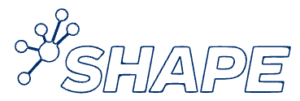 |
SHAPE: Orchestrating services – Development and piloting in service ecosystems
The research project SHAPE aspires to foster data-driven service innovations, which offer substantial benefits for the transformation and resilience of the German economy. Customer-specific, data-driven services increasingly require the cooperation of several actors, who have the required know-how, methodological expertise and resources. As a result, value co-creation is increasingly taking place in ecosystems. Hence, during the project period, the SHAPE hub is to be developed as a vehicle to orchestrate actors and resources and provide them with a set of methods that they can use for data-driven service innovations in ecosystems. The aim is to develop scalable approaches for establishing service ecosystems for SMEs, public institutions and other stakeholders. |
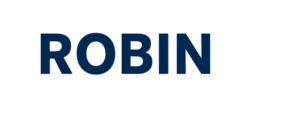 |
ROBIN: Resilience by orchestrating citizen-driven innovation through digital platforms in urban-rural constellations
The research project ROBIN investigates how the resilience of municipalities in their respective regional interdependencies can be improved by orchestrating citizen-driven innovation. The focus is on exploring design knowledge for an open digital innovation platform for municipalities and how this can be sustained in the long term. Within the platform where civil society innovators can organize on their own to collaboratively develop solutions in crisis situations. |
 |
SASSCAL 2.0 – Virtual Regional Pole of Engineering (VRPE)
The VRPE project aims to strengthen existing regional capacity to generate and use research to inform decision-making on climate change and adaptive land management through workforce and service. |
 |
WDT – Professional Education Center Digital Transformation
Digital transformation requires both an understanding of the technologies that drive the current change and the ability to implement the transformation organizationally. WDT builds on the regional structures of LZE to efficiently establish an adequate further education offer. In order to address different perspectives on the topic simultaneously, a consortium of four specialists from the respective fields was formed |
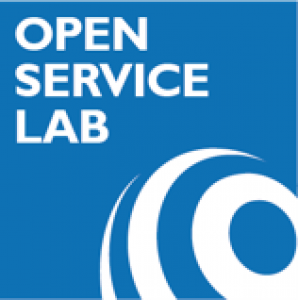 |
OSL – Open Service Lab
Das Open Service Lab (OSL) initiiert und gestaltet Forschung in den Kernthemen Dienstleistung sowie Zukunft der Arbeit. Angesiedelt am Lehrstuhl für Wirtschaftsinformatik, insb. Innovation und Wertschöpfung, der Friedrich-Alexander-Universität Erlangen-Nürnberg (FAU) und in Zusammenarbeit mit der Service Factory des Fraunhofer SCS in Nürnberg werden diese Themen seit 2012 stetig vorangetrieben. |
Finished Research Projects
 |
DL2030: Digital services as a success factor for the future of value creation The research project “DL2030” identifies major R&D requirements and approaches to address these. The focus is on technology orientated service systems with high customer value. These systems lead the way towards a competitive German economy. By these measures, the position of service research as a stand-alone scientific field is strengthened. Strategic research directions, potentials and requirements are enforced. The research roadmap, created during the project, is a foundational element for future research emphases in service research. |
 |
The research project ‘Siemens Service Factory’ accompanies the development of the IT service framework at Siemens AG. The aim is to ensure development quality and structure the development of new IT services at Siemens AG. |
 |
New working environments in pilot areas The joint research project of FAU Erlangen-Nürnberg’s chair of Information Systems, Innovation and Value Creation and the insurance company “NÜRNBERGER Versicherung” explores in the context of Open Innovation and future of work how open, flexible and multi-functional workplace designs impact existing work processes, employees and the overall organization and thereby lead to future workspace concepts. |
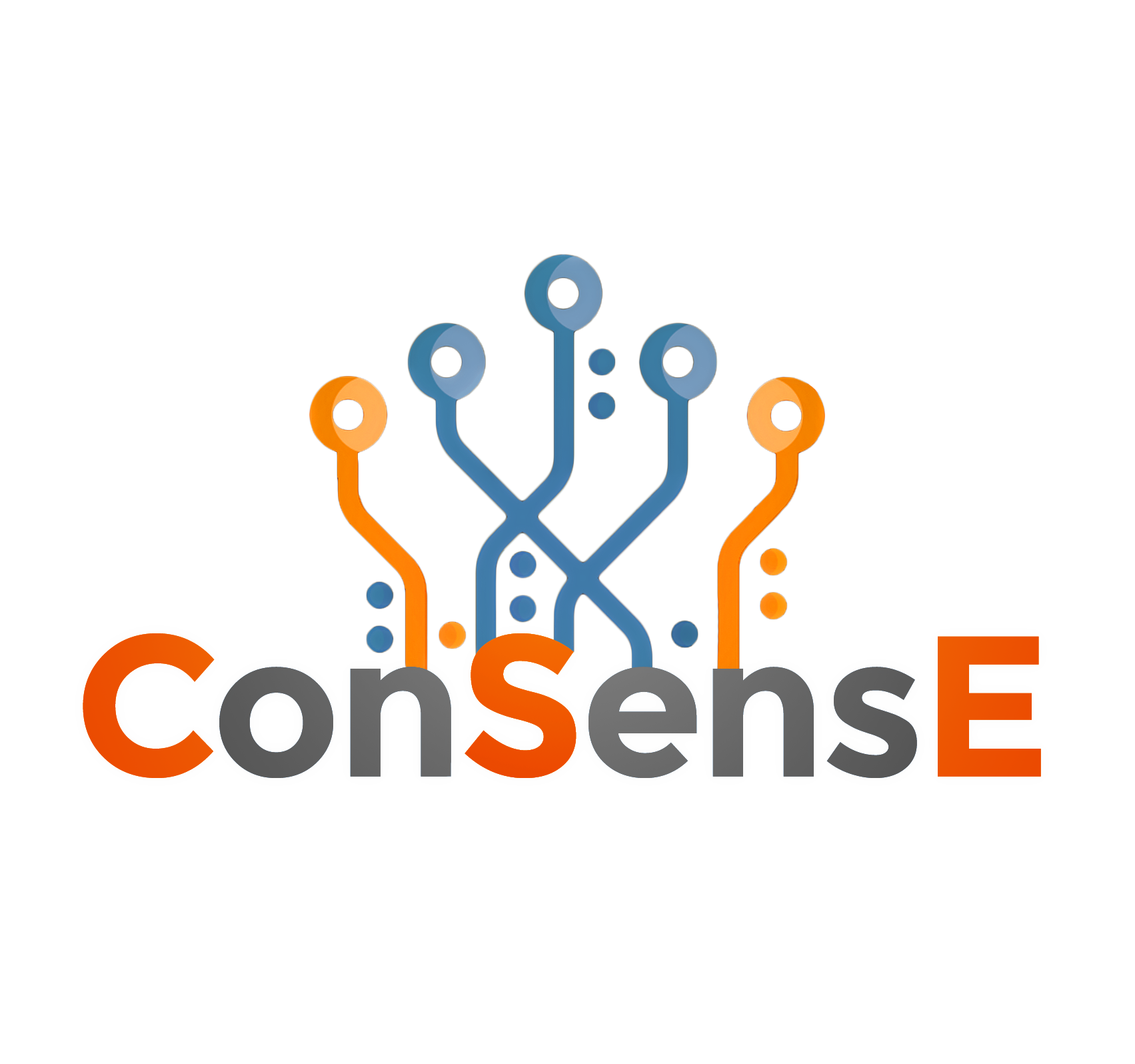 |
The aim of the research project is to develop a platform-based assistant for matching sensor solutions with digital business models, which will enable plant designers to identify user-centric requirements during the planning phase. In addition, stakeholders such as equipment and sensor manufacturers can use this tool to develop and offer data-driven services to complement their hardware products. |
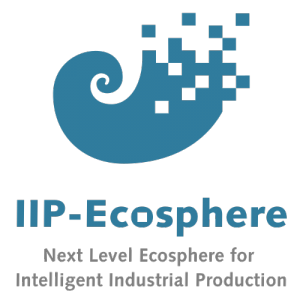 |
IIP-Ecosphere
As part of the project, we are developing an ecosystem for the low-threshold implementation of AI applications in production and in process chains with the aim of constructing intelligent production. |
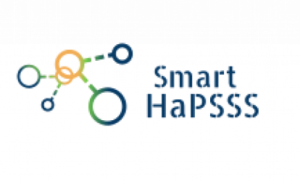 |
SmartHaPSSS: Harmonisierung der Entwicklung von komplexen Produkt-Smart-Service-Systemen bei KMU In SmartHaPSSS, potentials for harmonising the individual activities in the development of physical products, information technology structures, services and business models are identified and translated into concrete tools and methods for SMEs. The project forms a further component of “Innovations for tomorrow’s production, services and work“. |
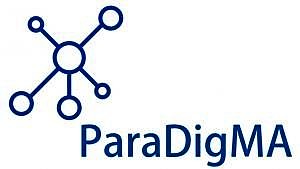 |
ParaDigMA: Partizipative Mitbestimmung in digitalisierter Arbeitswelt
Im Zuge der Digitalisierung von Arbeit gerät die betriebliche Mitbestimmung unter Druck. Jedoch drängen sich nicht nur neuartige Regulierungsfragen auf, es entstehen zugleich Möglichkeiten, digitale Technologie gewinnbringend für die Mitbestimmungsarbeit selbst einzusetzen – und dabei die Institution des Betriebsrats für eine beteiligungsorientiertere Betriebspolitik zu öffnen. |
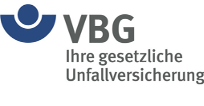 |
Digitization of the central transfer procedure for temporary employment The main objective is the evaluation of a software that enables the digital admission process of temporary contract workers. Within this project, the functionality of the interfaces, in particular with regard to the impact of digitization on safety and health at work, economic efficiency, the time required and the transparency of the provided software solution are being evaluated. |
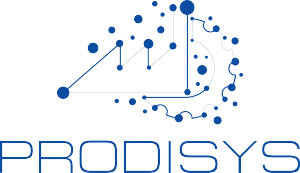 |
PRODISYS: Engineering Produktionsbezogener Dienstleistungssysteme
Unternehmen entwickeln im Kontext von Industrie 4.0 neuartige, digitale Produkte und anwendungsspezifische Dienstleistungen, die bspw. die Fehlervorhersage oder Prognosen im Zusammenhang mit Wartungstätigkeiten von Anlagen ermöglichen oder automatisiert Arbeitspläne für Maschinen und Menschen optimieren. |
 |
LZE – Leistungszentrum Elektroniksysteme II
The Leistungszentrum Elektroniksysteme (LZE) is a joint initiative of the Fraunhofer-Gesellschaft, Fraunhofer IIS, Fraunhofer IISB, and Friedrich-Alexander University Erlangen-Nürnberg (FAU), in addition to other non-university research institutes and various industry partners. |
 |
JOSEPHS® – The changing nature of retailJOSEPHS® – The innovation laboratory is a project by the Fraunhofer IIS – Center for Applied Research on Supply Chain Services SCS and the FAU Erlangen-Nuremberg’s chair of Information Systems 1. |
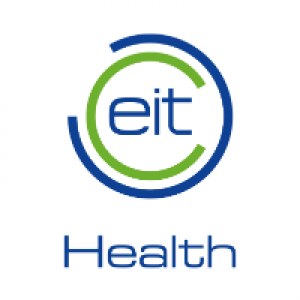 |
EIT Health 2016Camp224 Innovation Leadership & Business Management Executive Education ‘Innovation Leadership & Business Management Executive Education’ (EIT Health 2016Camp224) is a project with partners from six European countries focused on fostering excellence and innovation in health care and business management executive education. |
 |
Mit Industrie 4.0 bezeichnet man die intelligente Digitalisierung und Vernetzung der industriellen Wertschöpfung. Die Hightech-Strategie der Bundesregierung sieht Industrie 4.0 dabei als wesentliches Zukunftsprojekt für die Bewahrung der globalen Wettbewerbsfähigkeit Deutschlands. |
 |
VeSiKi: Vernetzte IT-Sicherheit Kritischer Infrastrukturen
VeSiKi ist das wissenschaftliche Begleitforschungsprojekt zum BMBF-Förderschwerpunkt “IT-Sicherheit für Kritische Infrastrukturen”. Einerseits begleitet es die Verbundprojekte im Förderschwerpunkt und unterstützt den kooperativen Forschungsprozess. |
 |
CoDi: Cooperatives in the Digital Age
The project ‘Cooperatives in the Digital Age’ (CoDi) investigates challenges and opportunities of the increasing digitization of industry and society from the perspective of cooperative banks. The ongoing digitization enables incumbent firms as well as start-ups to create new products, services, and business models. |
 |
ExTEND: Engineering von Dienstleistungssystemen für nutzergenerierte Dienstleistungen
Während der Einführung von neuer Software sehen sich viele Unternehmen mit einer geringen Nutzung, Frustration von Anwendern, dem verpassen der eigentlich erwarteten Effekte oder dem nicht erreichen des erwarteten organisatorischen Wandels auseinandergesetzt. |
 |
MEGA: Maßnahmen und Empfehlungen für die gesunde Arbeit von morgen
Mit dem im November 2015 gestarteten Projekt “Maßnahmen und Empfehlungen für die gesunde Arbeit von morgen” (MEgA) werden ganzheitliche Konzepte und Methoden für ein modernes HR- und Gesundheitsmanagement in einer digitalisierten und dynamischen Arbeitswelt entwickelt. |
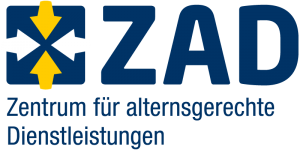 |
ZAD: Zentrum für alternsgerechte Dienstleistungen
ZAD is an interdisciplinary project of experts in the fields of service engineering and management, psychogerontology, innovation management, and information systems. |
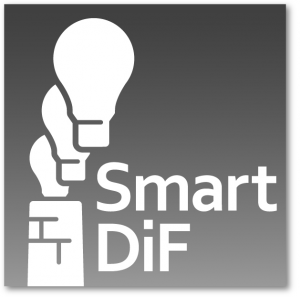 |
SmartDiF: Smarte Dienstleistungs-Fabrik
Industrielle Werkzeuge, Werkzeugmaschinen und Produktionsanlagen, ebenso wie zahlreiche im Produktionsprozess entstehende Werkstücke sowie Produktions- und Dienstleistungsprozesse mit Anbindung an entsprechende Informationssysteme generieren heute bereits kontinuierlich Daten. |
 |
BigDieMo: Big Data Dienstleistungsgeschäftsmodelle
Im Rahmen des Verbundprojekts BigDieMo werden Werkzeuge zur Gestaltung von Big Data Dienstleistungen für kleine und mittlere Unternehmen (KMU) in Deutschland entwickelt, um die häufig noch unerschlossenen Potentiale von Daten für Dienstleistungsinnovationen nutzbar zu machen. Dabei liegt der Fokus dieses Projektes auf der Gestaltung von Geschäftsmodellen für Big Data basierte Dienstleistungen. |
 |
LZE – Leistungszentrum Elektroniksysteme
The Leistungszentrum Elektroniksysteme (LZE) is a joint initiative of the Fraunhofer-Gesellschaft, Fraunhofer IIS, Fraunhofer IISB, and Friedrich-Alexander University Erlangen-Nürnberg (FAU), in addition to other non-university research institutes and various industry partners. |
 |
Which drivers and barriers are responsible for that employees involve in Open Innovation processes, and in which ways can these innovations processes be realized in small and medium-sized enterprises (SMEs)? The research project Open-I, funded by the Federal Ministry of Education and Research (BMBF), strives to find answers to these questions. The concept of Open Innovation comprises voluntary involvement in innovation processes across teams, departments, and organizational units. |
 |
The key promoters for the development of service innovations and for establishing an innovative culture in the service sector are the people involved. In contrast to industry sectors, the service sector has not fully developed its potential with regard to professionalization and professions. Therefore, the meta project “ServProf” contributes to substantial enhancements in the field of “Service Quality by Professional Approach”. |
 |
Which influence does high-tech-equipment have on the innovation capability of enterprises? How can the technology and knowledge transfer be designed within a Second-Product-Lifecycle-Strategy? How can the transferred technology and knowledge contribute to fostering innovations in the target enterprises? These are the questions the research project 2nd Tech-Cycle, funded by the Federal Ministry of Education and Research (BMBF) and the European Social Fund, strives to find adequate answers to |
 |
The research alliance BALANCE comprises 39 research projects dealing with flexibility and stability in the working world. It presents their research results and creates visibility in economy, science, society and politics. |
 |
The project CoCo focuses on social media in cooperatives and their role in connecting people and establishing valuable networks. A cooperative is an autonomous group of people who cooperate for their mutual benefit. Thus, the network is a cooperative’s essential asset. |
 |
The EiVE project addresses specific challenges of a holistic health care for patients with rare diseases. It aims for the extension of knowledge on innovative care approaches as well as the design of interdisciplinary health care networks and their effective implementation within the health care system. Due to the rarity of the addressed diseases and the geographic dispersion of the involved persons, expert knowledge is only available to a limited extent and knowledge transfer is impeded. |
 |
Die Alterung der Belegschaften führt in vielen Branchen zu einem vorhersehbaren Mangel an Fach- und Nachwuchskräften. Zugleich wird gerade das Wissen erfahrener Arbeitnehmer und deren intellektuelles Kapital zunehmend bedeutsam für den Wirtschaftsstandort Deutschland. Aufgrund solcher Entwicklungen ist vordringlich komplexes Fach- und Erfahrungswissen von Erwerbstätigen zu konservieren und zwischen den Generationen am Arbeitsplatz nutzbar zu machen. |
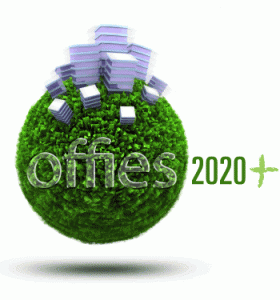 |
The project OFFIES 2020+ targets the development of new concepts for energy efficiency in the mobility and residence sector as well as in their relationships. OFFIES 2020+ uses the citizens’ and users’ existing knowledge of needs and solutions to transcend the formerly closed development processes of cities towards open innovation approaches. |
 |
Das Projekt “Open Innovation für nachhaltige Gesundheitslösungen (OIG)” zielt darauf ab, Antworten auf komplexe Fragen im Innovationsfeld medizintechnischer Produkte und Services zu finden. Mit Hilfe einer Online-Plattform werden unternehmensintern ungelöste Forschungs- und Entwicklungsfragestellungen an eine fachlich heterogene Expertencommunity gestellt. |
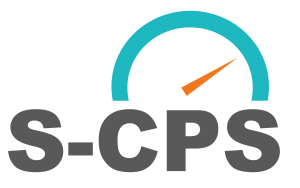 |
The project S-CPS aims to identify and analyze productivity relevant factors for service operations to allow effective and efficient maintenance, by respecting local and technical conditions. Therefore a resource cockpit is developed, which brings together data streams of several heterogeneous production resources relevant for the mobile workforce to provide remote support for service operations. |
 |
WiIPOD The research project WiIPOD integrates innovators at the boundaries of the firm in open innovation processes by relying on organizational appreciation (Appreciation networks as integrated innovation instruments of human resource development and organizational development in times of demographic change). |
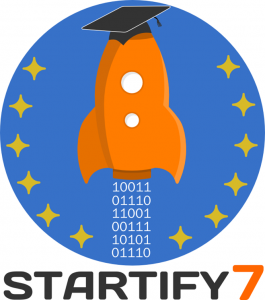 |
STARTIFY7 is a Horizon2020 project aimed at training young European future ICT entrepreneurs.This a challenging task, since existing European ICT entrepreneurship training initiatives are characterised by a general fragmentation and a lack of a ‘learning-by-doing’ training approach. STARTIFY7 is an innovative and ambitious project aiming to go beyond the state-of-the-art and create strong synergies with existing initiatives and projects. |
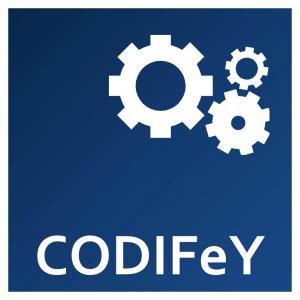 |
The joint project CODIFeY aims at integrating interested parties into the development of new services and solutions for electro mobility. For this purpose, an online community platform is set up. The „knowledge building“, „user analysis“ and „service innovation“ modules examined within the framework of the project are stored on the platform and are realized together with the community members. |
